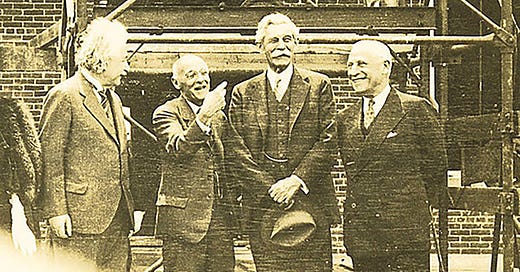The Usefulness of Useless Knowledge
Or why following your curiosity down strange rabbit holes might be the most productive thing you do all week.
Let’s get one thing straight: the world doesn’t give a damn about your inner life.
It wants output. Deliverables. Results. You’re supposed to monetize your hobbies, hack your workflow, track your steps, sleep, calories, and dreams. Be a good cog. Spin faster.
But once in a while—between deadlines and dopamine hits—you feel it. That strange gravitational p…
Keep reading with a 7-day free trial
Subscribe to Useless Knowledge® to keep reading this post and get 7 days of free access to the full post archives.



